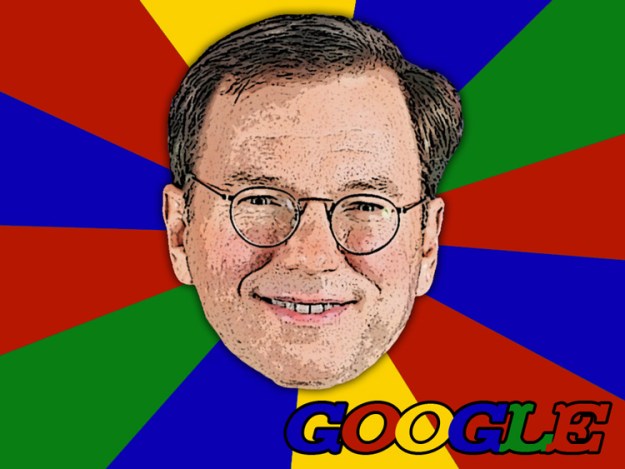
At a Senate Judiciary Committee hearing yesterday, Google chairman Eric Schmidt tried to put the best possible face on Google’s business model, characterizing the Internet as the ultimate level playing field, and noting that if consumers and businesses don’t like Google, alternatives are just one click away.
However, Schmidt’s (and Google’s) statements side-step facts that have put Google in the crosshairs of antitrust scrutiny: the company dominates Internet search, which means businesses that don’t rank well in Google’s view of the Internet essentially become invisible and undiscoverable. Google is also accused of favoring its own sites and services in search results over those of competitors, potentially leveraging its dominance in one area of online activity to suppress competition in others.
Are Google’s actions breaking any laws? And what price might the company have to pay if judges (and lawmakers) decide the company has crossed the line?
The case against Google
Complaints about Google’s business practices are complex, but they all start with Google’s dominance of Internet search. Although Google has been losing a bit of ground to competitors like Microsoft’s Bing, Comscore shows Google with a 64.8-percent share of the U.S. search market in August 2011, with the company handling over 11 billion Internet searches from Americans during the month. And Internet search remains a nearly-universal activity: according to the Pew Internet & American Life Project, 92 percent of Americans use search engines to find information on the Internet.
Google’s dominance of Internet searching puts the company in a unique position: If a particular site or business doesn’t rank highly in Google’s search results, it effectively becomes unfindable — even if potential customers are looking for the exact product or service a site offers. Tweaking sites and content to rank higher in Google’s search algorithms has spawned a whole industry, euphemistically dubbed “search engine optimization” or SEO, devoted to the arcane practice of using (and tricking) search engines into ranking pages and sites more highly than those of competitors. But where that sentence reads “search engines,” we really mean Google: nearly all site optimization is done with the explicit purpose of improving Google page rankings, and if it helps the site in other search engines, that’s just gravy. In fact, other search engines have to work hard to make sure techniques that improve Google search rankings also work in their search engines.
It would be one thing if Google merely had the dominant search service that it offered for free: After all, Internet users vote with their clicks, and if Google’s search results weren’t useful to people, more of them would switch to other search engines like Bing, Yahoo, Ask.com, or even AOL. But Google doesn’t earn money from search users; one of the primary ways it makes money is by selling advertising. Ironically, one of the first companies to raise antitrust concerns against Google was Microsoft. When Google bought online advertising company DoubleClick back in 2007, Microsoft argued the move was not only a threat to consumer privacy, but posed an “imminent risk” of monopoly abuse by Google. After all, if the only search ads that matter on the Internet are on Google, then Google could leverage its dominance of online search to charge whatever it liked for search advertising — and companies would have no choice but to pay.
The situation is more complex—Google sells not just ad space, but auctions off keywords like product and brand names so particular ads get placed next to particular types of searches. If Google manipulates the number of keywords and ad positions available for bidding, or assists companies in bidding against each other for available slots, Google could be in violation of section 2 of the Sherman Antitrust Act, which bars certain types of anticompetitive behavior. Google could also find itself in violation of FTC regulations if it enables placement for illegal products or services. For instance, the company just agreed to pay $500 million to settle charges the company illegally enables Canadian pharmacies to target U.S. consumers with discount medication offers.
Of course, Google search doesn’t just return links to other sites. Google’s “universal search” means Google sometimes decides it would be more useful to provide an answer directly, such as a map link, a number, a price, or a date. This is more than typing “12 pounds in kilograms” into Google’s search box (result: 5.44310844 kg). Enter “capital of jamaica” into Google and the first things shown are a Google Maps link to Kingston (complete with map insert), along with a selection of photos drawn from Google Maps, and a series of links to Jamaica-related items: hotels, restaurants, and of course the Bob Marley museum. But search for “telecaster” and you’ll get the Wikipedia entry to Fender Telecaster…then a series of links to Telecasters using Google’s own Product Search. Fender itself comes in third.
Critics charge results like that for “telecaster,” above, are examples of Google favoring its own in-house content and services over those from third parties. Google’s universal search also gravitates towards presenting information from Google Places, its own guide to local businesses and attractions, as well as Google News, Google Local, Google’s new flight search, and other markets where the company has vertical service offerings. So not only does Google dominate search, it sometimes decides that it wants to try to respond to a search query directly—almost always by first presenting material from its own services.
It’s easy to see how Google’s universal search has run afoul of online retailers, travel sites, mapping and location services, as well as folks who run directories of businesses and attractions.
“Google attracts users to Google Shopping by rigging the results to favor itself, not by winning against its competitors,” testified Nextag CEO Jeff Katz, before the Senate Judiciary committee (PDF). “Google says that competition is just one click away, but that is like saying move to Panama if you don’t like the tax rate in America. It’s a fake choice because no one has Google’s scope or capabilities and consumers won’t, don’t, and in fact can’t jump.”
“Google is no longer in the business of sending people to the best sources of information on the Web,” testified Yelp co-founder and CEO Jeremy Stoppelman (PDF). “It is impossible for any of Google’s competitors to be displayed as prominently as Google itself, even if Google’s own algorithm rates them higher. In some instances, Google simply excludes competitor results as a matter of design, not as a matter of objective, algorithmically-driven analysis.”
In Yelp’s case, Google incorporated content from Yelp and other competitors into Google Local without permission. (When this first happened, Google was in talks about acquiring Yelp.) When Yelp complained, Google offered to remove the content, but also removed Yelp content from Google’s “merged” Web search results. Yelp claims that action represents a market abuse of Google’s search dominance: It was faced with a choice of handing its content over to Google Local for Google’s benefit for free (thereby taking a huge blow to its business), or being excluded from Google’s Web broader search results (also a huge blow to its business). Google denies they’ve excluded Yelp from Web search results.
That kind of tying arrangement is a potential violation of the Clayton Antitrust Act. Google favoring its own services may be a violation of the Federal Trade Commission act (section 5): essentially Google claims to offer unbiased search results, but actually produces results favoring Google services—and that could be harming consumers.
We’re not evil — honest!
In a publicity move gearing up for Eric Schmidt’s testimony, Google prepared a guide to its planned testimony, and has since posted a response to many of the claims made by critics during the hearing—including the specific quotes above. The material contains some specific details, but basically boils down to two things: Google believes it is trying to do what its users want, and alternatives to Google are readily available.
Google says its universal search tries to present “the best answer” to some queries (like “guitar amp prices”) because consumers want to see shopping results rather than a list of links that might provide shopping results. If regulators were to set standards and practices for search results, Google argues consumers would actually be harmed because Google wouldn’t be able to innovate in response to the market, and give consumers what they want right on the search results page.
To defend its universal search practices, Google says Bing and Yahoo provide the same kind of shopping results — which is a bit like the pot calling the kettle black, because Yahoo and Bing have largely been following Google’s lead in this area. By saying Yahoo and Bing do the same thing, Google is in fact underscoring how much influence its search practices have on the marketplace.
Google also — rather incredulously — goes on to say that search engines aren’t really all that important to Internet users. “Google serves more like a GPS on the Internet highway — not an on-ramp,” the company wrote. “It helps people get around, but it’s not necessary. If someone knows where he wants to go, he can navigate to those destinations directly.” Yet just last month, Americans asked Google for directions more than 11 billion times — that’s loosely equivalent every Internet user in America turning to Google for directions every day. The Pew Internet & American Life Project found Internet search is tied with email as American Internet users’ most common online activity.
What is Google’s market?
In what is likely to be a telling move, Google argues in its testimony that Internet search isn’t where Google is competing — it’s essentially competing against all Internet services and all advertising platforms — a much broader market where it faces huge competition from…well, essentially every online business, media company, and communications operator on the planet.
“We don’t just compete against other general search engines (Bing, Yahoo), but new forms of accessing information, including specialized sites (Amazon, WebMD, eBay), social networks (Facebook, Twitter) and mobile apps. In ads, we compete for ad dollars every day against other forms of advertising, including TV, radio, newspapers, magazines, and online banner ads.”
From a legal standpoint, this distinction could be critical to Google’s future. Any antitrust investigation — or trial — concerning Google’s business practices will likely spend a great deal of time arguing about what business Google believes it is in, what Google’s relevant market might be, and what share of that market Google controls.
There’s little question Google has a dominant position in Internet search, and a leading position in Internet advertising. If antitrust scrutiny goes forward, Google will almost certainly try to argue Internet search and online advertising are but two components in a much larger market in which it is struggling to compete. That argument will encompass all the vertical areas where Google has service offerings, like e-books, news, travel, business recommendations, mapping, online shopping, as well as social networking (Google Plus), cloud services (Gmail and Google Apps), online media (YouTube), and traditional media (including television—think Google TV). And let’s not forget mobile devices; Google sees Android and its brand-new Motorola acquisition as key components of its overall business.
Google is not Microsoft
The attention the Senate Judiciary Committee has been paying to Google has drawn a number of comparisons to the high-profile 1990s case of high-tech antitrust litigation: the United States versus Microsoft. Microsoft was declared a monopoly — monopolies aren’t per se illegal, only abuse of monopoly power — but through a consent decree, Microsoft agreed to years of federal oversight and supervision to ensure it doesn’t use its dominance in desktop and server software to inhibit competition or harm consumers.
Google’s Eric Schmidt says Google and the broader industry learned its lesson from the Microsoft litigation: Don’t use dominance in one area of your business as a stick to beat competitors into the ground in other areas. At first glance, Google would seem to be doing the same thing, using its dominance in search to shut down competitors in other vertical markets. However, a key distinction between Microsoft’s situation and Google’s is that Microsoft locked up its Windows monopoly with contractual requirements that limited the number of Intel-based PCs that could ship without Windows, and then used that dominance to “cut off the air supply” of companies like Netscape. Although Google is the leading player in Internet search, it doesn’t have a contractual lock on it, and Google’s overall share of the U.S. search market has, arguably, been sliding. The last time Google saw its share of the U.S. search market increase was back in May, and that was only by 0.1 percent at the expense Ask.com: Yahoo and Microsoft held steady.
What to expect
One thing industry watchers agree on: The lengthy antitrust trial and decade of federal scrutiny endured by Microsoft may not have done much to disrupt Windows’ dominance of the desktop operating system market, but it put a lingering dark cloud over the company, both in terms of its public perception and its own internal psychology. Microsoft’s antitrust trial cemented the company’s status as “the Evil Empire,” and had a lingering effect in Microsoft stock price, which has been essentially stagnant over the last several years.
Regardless of whether antitrust charges are ever leveled against Google, the company now has a similar dark cloud lingering over its every move. Where businesses were once enthusiastic about partnering with Google, or being acquired by Google, they’re now more likely to question Google’s motivations.
Instead of looking at Microsoft’s antitrust experience, Google might do better to look at Intel. A little over a year ago, the company managed to wiggle out of years of U.S. antitrust scrutiny without paying a penny in penalties. (The company didn’t fare as well in the European Union, but it’s still appealing.) Of course, Intel worked out a separate $1.25-billion deal with AMD, but the chipmaker managed to walk away from U.S. antitrust allegations with barely a slap on the wrist after years of paying kickbacks to computer makers and retaliating against manufacturers who went with other suppliers. Meanwhile, Intel is still considered a shining example of Silicon Valley innovation and business acumen… even if it hasn’t gotten its mobile story together yet.
Google will likely do everything it can to keep antitrust issues out of the courtroom—and out of Senate committee hearings.


